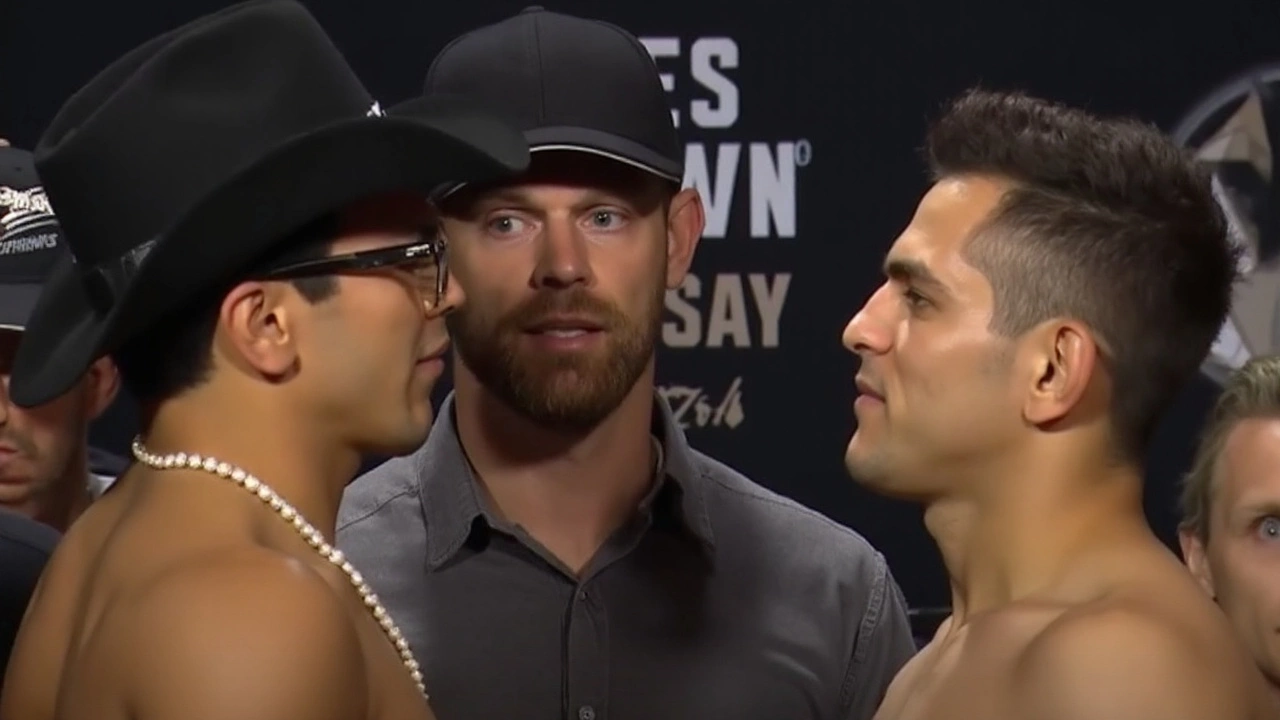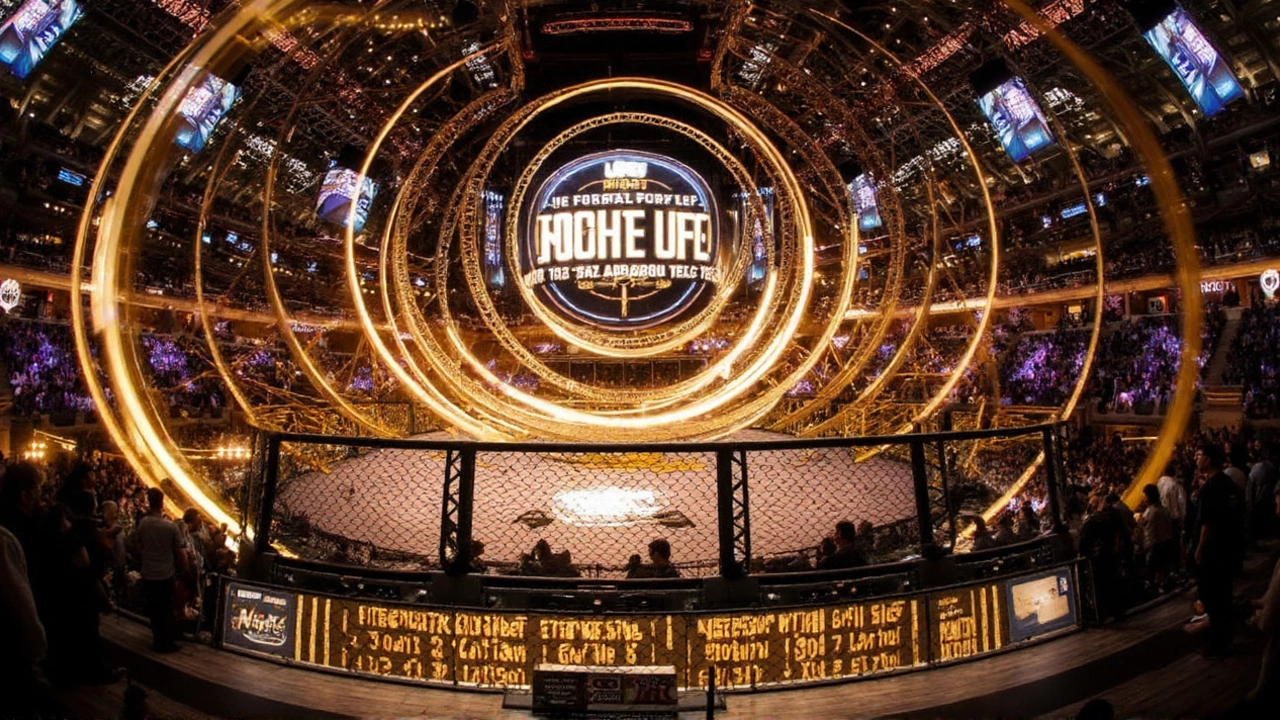UFC Noche brings fireworks to San Antonio on Mexican Independence Day weekend
A spinning back elbow is one of those strikes you try when everything else is equal and you want to end a fight in a flash. That’s exactly what happened in San Antonio, where Diego Lopes flattened Jean Silva and put a stamp on an action-heavy UFC Noche card built to celebrate Mexican Independence Day.
The event leaned into the moment—fast starts, quick finishes, and a crowd that never took a breath. Eleven months after the UFC’s push to anchor a September slate around Hispanic Heritage and Mexican Independence Day, the idea looks cemented. The matchmaking favored pressure fighters and reliable action. It paid off.

Diego Lopes levels up; Garcia mauls; finishes pile up
The main event turned on a single, violent pivot. Lopes set his feet, spun, and cracked Silva with a clean back elbow that sent him crashing down. Lopes swarmed with punches until the referee stepped in. It was a comeback in every sense—he beat a surging opponent and did it in style. For a fighter trying to rebuild momentum, that’s the kind of clip that lives everywhere on Monday morning.
The shot mattered for more than the highlight. Spinning back elbows are risky. If you whiff, you’re off balance and wide open. Lopes picked the moment well, setting the range early, baiting Silva into stepping in, and turning the exchange into a finish. It showed feel and nerve, not just power.
What does it do for him? It puts his name back into the featherweight mix. He won’t jump the line overnight, but the statement was loud. He’ll have options now—another all-action pairing, or a step into the ranked conversation against a steady top-15 gatekeeper. Either route works after a knockout like that.
Silva, who came in red-hot, now gets a reset. He has speed, snaps punches straight, and carries power. The lesson here is to manage angles when facing a switch-up striker. He got caught turning inside a pocket exchange. That’s fixable. His stock takes a hit, but not a cliff dive.
In the co-main, Rafa Garcia fought like he was late for something. He floored Jared Gordon with a heavy right hand, then poured on ground-and-pound until the referee waved it off for a TKO. Garcia’s pressure is a problem when he finds his rhythm—high guard, forward march, and no wasted movement. Gordon is as durable as they come, but he never recovered after the knockdown.
The rest of the main card stayed on theme: quick triggers, clean finishes, and enough drama to fill the replays.
- Flyweight: Alden Coria stopped Alessandro Costa by TKO at 0:47 of Round 3. Coria managed the body work early, then landed clean upstairs when Costa tried to rally. The timing on the finish was sharp—no panic, just placement.
- Women’s bantamweight: Montserrat Rendon edged Alice Pereira by split decision after a grinding three rounds. It was a fight of inches—clinch control, short elbows, and late scrambles likely swung it for Rendon on two cards.
- Welterweight: Rodrigo Sezinando stopped Daniil Donchenko by TKO at 4:27 of Round 1. Sezinando dialed up pressure from the start, mixed levels, and found the opening before the horn. That’s the kind of debut-or-bounce-back win that gets you a tougher booking fast.
Two veterans also logged hard minutes. Rob Font went the distance in a bantamweight bout that turned into a battle of jabs and feints. He showed improved defensive looks and better shot selection, even if he didn’t find a late surge. Kelvin Gastelum, meanwhile, heard the final horn in a middleweight fight but took heat at the weigh-ins for missing the mark. He apologized, but the penalty doesn’t end at the purse deduction—fans notice, and so do matchmakers. Scorecards read 30-27, 29-28, and 29-28. The lone 30-27 raised eyebrows; the other two felt more in line with a competitive bout.
There was also the oddity of the night. Zachary Reese vs. Sedriques Dumas ended as a no contest just 51 seconds into Round 1. Rare, abrupt endings always leave a sour taste and open questions. Without a clean winner, both men walk away with the same problem they walked in with—uncertainty about what comes next.
Beyond the results, the event felt like a proof of concept. UFC Noche isn’t just a date on the calendar; it’s a tone. The card featured a heavy mix of Latin American talent and fan-favorite styles—forward pressure, wrestling-to-striking blends, and willingness to trade. That’s a reliable recipe for a loud building and memorable finishes.
For the athletes, nights like this reshape lanes. Lopes turns a single strike into a springboard. Garcia adds a statement TKO to a resume built on pressure and cardio. Coria takes a step from promising to proven with a third-round surge. Rendon banks a close decision that will move her up the queue in a division where one win can rewrite a year.
The judging and weight storylines will linger too. Scorecards remain a weekly debate, and a wide 30-27 on a competitive fight fuels that conversation. As for weight misses, fighters know the math: you pay at the scales, pay in perception, and sometimes pay in matchmaking leverage. Gastelum’s apology matters, but so will what he does next time Friday morning rolls around.
In the end, the card delivered what it promised—speed, intent, and plenty of action. The main event knockout will carry the headlines, but the undercard did the heavy lifting to set the stage. If UFC Noche’s goal is to blend cultural celebration with high-tempo matchmaking, San Antonio checked every box.
